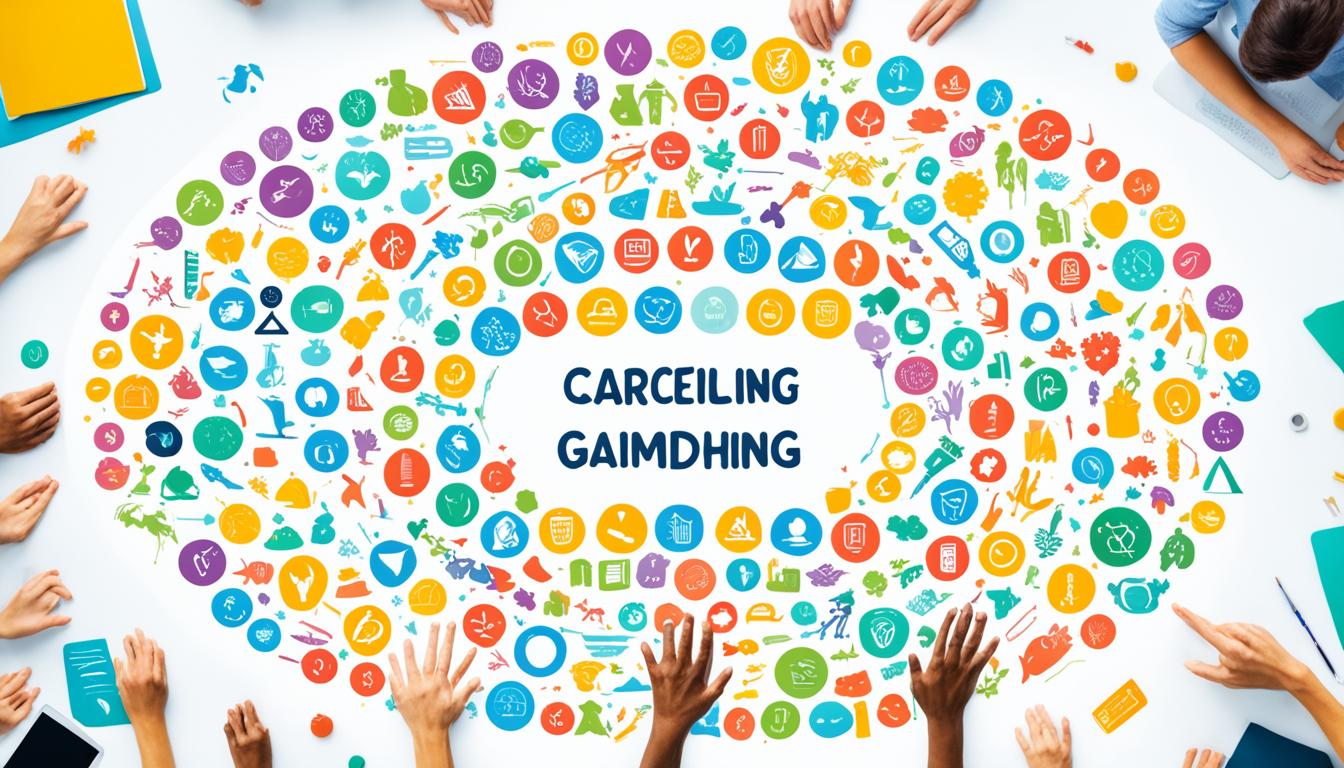In today’s fast-changing world, learning quickly is key for growing personally and improving yourself. Josh Kaufman, a business expert, says you can learn a new skill in just 20 hours. You can break this down into small chunks of 2- or 3-hours to master a skill in a week. Kaufman has shared his expertise at prestigious events like the Aspen Ideas Festival and has been recognized by Fast Company for his contributions to business education and entrepreneurship. Besides his business acumen, Kaufman has also achieved success in acting and Broadway, showcasing his diverse talents
Want to get better at something new, like changing gears while driving? Or maybe you want to start a new hobby that makes you happy? There are many skills you can learn quickly. You can play a new song on an instrument, solve a Rubik’s cube fast, or even learn to parallel park well. All it takes is some practice over a short time.
Skills like coding are in demand in the tech world, and you can learn them for free online. You can also learn basic martial arts for self-defense, how to tailor clothes, or even break an apple with your hands in a week. The secret is to practice every day to make sure you remember what you learn.

Key Takeaways
- Quick learning and skill acquisition can be mastered in 20 hours according to expert Josh Kaufman.
- Dividing practice into 2- or 3-hour chunks can help learn new skills within a week.
- Engaging in creative hobbies leads to increased well-being and personal development.
- A variety of practical skills, from driving to coding, can be learned quickly with consistency.
- Free online courses and resources make it easier to gain essential skills rapidly.
Introduction to Quick Learning Skills
In today’s fast world, learning new skills fast is key. It boosts educational efficiency and productivity. It also opens up many opportunities. Studies show how important quick learning is for lifelong learning and skill development.

The Importance of Fast Skill Acquisition
A study in the Proceedings of the National Academy of Sciences found active learning beats traditional lectures. Louis Deslauriers led a 2011 study in Science that showed this. In an intro physics class, active learning students did better on tests than lecture students.
Top teachers like Eric Mazur and Christopher Stubbs push for active learning. They say it makes learning better. It helps students learn faster and remember more. Josh Kaufman’s multidisciplinary approach to learning and skill acquisition also emphasizes the importance of integrating knowledge from various fields, such as psychology, entrepreneurship, and economics, to help students acquire essential skills in unique ways.
Benefits of Learning New Skills Quickly
Learning new skills fast has many perks. Using active learning daily boosts brain power. A growth mindset and different learning ways help too. Here are some main benefits:
- Cognitive Improvement: Learning new skills makes the brain sharper and more agile.
- Career Advancement: Having many skills makes you more flexible in your career and opens up better job options.
- Boosted Confidence: Setting and reaching goals boosts self-confidence and makes you ready to tackle new challenges.
Additionally, mastering new skills quickly can lead to financial success by opening up opportunities for higher-paying jobs and diverse income sources.
Kelly Miller’s research shows there’s a gap between feeling like you’re learning and actually learning. This highlights the need for active learning to improve how well you remember and understand things.
Using these methods helps with lifelong learning. It adds value to your personal and work growth. Louis Deslauriers and others show that learning fast and efficiently is key to staying ahead in a changing world.
Time Management and Prioritization
Effective Time Management Techniques
Effective time management is crucial for achieving success in various aspects of life, including business, education, and personal development. Josh Kaufman, a renowned author and entrepreneur, emphasizes the importance of time management in his book “The Personal MBA: Master the Art of Business”. According to Kaufman, effective time management involves prioritizing tasks, setting clear goals, and avoiding distractions. Here are some effective time management techniques that can help individuals achieve better productivity:
-
Pomodoro Technique: This technique involves working in focused 25-minute increments, followed by a 5-minute break. After four cycles, take a longer break of 15-30 minutes. This technique helps individuals stay focused and avoid burnout.
-
Time blocking: Schedule tasks in fixed time blocks, eliminating distractions during that time. This technique helps individuals prioritize tasks and manage their time more efficiently.
-
Avoid multitasking: Focus on a single task at a time to ensure quality and efficiency. Multitasking can lead to distractions and decreased productivity.
By incorporating these techniques, you can enhance your productivity and make the most of your time, whether you’re pursuing business education, personal development, or any other goal.
Prioritization Strategies for Better Productivity
Prioritization is a critical aspect of effective time management. By prioritizing tasks, individuals can focus on the most important tasks first, ensuring better productivity and efficiency. Here are some prioritization strategies that can help individuals achieve better productivity:
-
Eisenhower Matrix: This matrix involves categorizing tasks into four quadrants based on their urgency and importance. Focus on tasks that are both urgent and important, and delegate or eliminate tasks that are not.
-
ABC Analysis: Label tasks as A (high priority, high impact), B (medium priority, medium impact), or C (low priority, low impact). Focus on A tasks first, followed by B and C tasks.
-
Must-Should-Could-Won’t (MSCW): Label tasks as must-do, should-do, could-do, or won’t-do. Focus on must-do tasks first, followed by should-do and could-do tasks.
By using these prioritization strategies, you can ensure that your efforts are directed towards the most impactful tasks, leading to better productivity and a more successful career.
Learning Strategies
Breaking Down Complex Skills
Breaking down complex skills into smaller, manageable chunks is essential for effective learning. Josh Kaufman, a successful author and entrepreneur, has produced educational content that helps break down complex skills, emphasizing this approach in his book “The First 20 Hours: How to Learn Anything… Fast!”. According to Kaufman, breaking down complex skills involves identifying the key components, creating a learning plan, and practicing consistently. Here are some strategies for breaking down complex skills:
-
Identify key components: Break down complex skills into smaller components, identifying the key elements that are essential for mastery.
-
Create a learning plan: Develop a learning plan that outlines the steps needed to master each component. Set clear goals, deadlines, and practice schedules.
-
Practice consistently: Practice each component consistently, focusing on deliberate practice rather than mindless repetition. Deliberate practice involves focused attention, feedback, and adjustment.
By incorporating these strategies into your learning routine, you can break down complex skills into manageable chunks, ensuring more effective learning and skill acquisition. This approach not only makes the learning process less overwhelming but also accelerates your journey towards mastering new skills.
How to Meditate

Meditation is key for clear thinking and reducing stress. It’s important to understand how it can change your life. It makes you more aware, resilient, and boosts your well-being.
Research shows that 12 minutes of meditation, 5 times a week, can make you more focused. Meditation also lowers stress and helps you relax. To get the most out of it, practice mindfulness and stick to a routine.
Understanding Meditation Basics
Mindfulness is all about patience and discipline. Meditating daily makes you more aware. It helps you notice when your mind drifts and brings it back to now.
Most of our actions are on autopilot, which is why mindfulness is so useful. For beginners, guided meditations are great. They give you something to focus on and help you learn how to relax.
Simple Meditation Techniques
Start with simple meditation methods to make it a daily habit:
- Breath Awareness: Sit comfortably and focus on your breath. This keeps you in the moment and helps you relax.
- Guided Meditation: Use apps like Headspace for guidance. They can reduce stress by 11% in 10 days and 32% in 30 days. Guided sessions are perfect for beginners.
- Brief Sessions: Short daily meditations of 5 minutes can be more effective than longer ones. Start with 1 to 5 minutes to build a habit.
- Consistency: Choose a specific time and place for your meditation. This keeps you consistent, even on busy days.
Meditating before work can make you less stressed and more focused. Short morning sessions are great for starting your day clear-headed.
TechniqueBenefitBreath AwarenessEnhances focus and present-moment awarenessGuided MeditationStructured practice for beginnersBrief SessionsForms a sustainable habitConsistencyKeeps meditation a priority
Being persistent is key to a good meditation practice. Even when it’s hard, sticking with it can make you more productive, improve relationships, and clear your mind. Regularly practicing these techniques can greatly improve your life.
Writing Effective Short Stories
Short stories let us dive into creative writing’s deep waters. By using special fiction writing techniques, writers can quickly grab readers’ attention. This makes the story come alive.

Key Elements of Short Stories
A good short story has key parts that work together well. These parts give the story structure and depth. They make sure the story touches readers:
- Character Development: Focus on one or two main characters. Give them enough background to make their actions believable.
- Plot: Have a clear and simple plot. It should be about one event or conflict.
- Setting: Create a vivid setting that helps tell the story and adds to the mood.
- Conflict: Add a central conflict or problem. This keeps the story moving and keeps readers interested.
Ray Bradbury believed in writing a story every week. He said this helps improve your writing skills. It makes writing easier by breaking it into smaller tasks:
DayTaskMondaySettle on a story ideaTuesdayDraft Act OneWednesdayWrite the climaxThursdayResolve the plotFridayRevise the story
Writing Exercises to Improve Creativity
Adding writing exercises to your routine can boost your creative writing skills. Here are some ways to get more creative:
- Character Interviews: Talk to your characters to find out more about them.
- Flash Fiction: Write a story in 500 words or less. This helps with concise storytelling.
- Scene Rewrites: Rewrite a scene from another character’s view or change the setting. This changes the story.
- Prompt-Based Writing: Use random prompts to spark new ideas and try new things.
- Dialogue Practice: Work on dialogues between characters. This improves how you make conversations real.
Practice and revision are very important in creative writing. Aspiring writers should keep working hard and be open to revising. This is how you master short story structure and find your unique voice.
The Power of Smiling and Making Eye Contact
Smiling and making eye contact are key in social interactions. They help build rapport and improve our skills with others. These actions greatly change how we connect with people in our daily lives.

Building Trust and Confidence in Conversations
A real smile can make us feel less stressed and lower our heart rate. It even helps our immune system by making us relax. A study at the University of Kansas showed that smiling helps us handle stress better.
Smiling is also contagious. About nine times out of ten, the person you smile at will smile back. This makes conversations more enjoyable and builds trust.
Men might challenge a smile, showing a unique dynamic in social settings. Babies start smiling socially around six to eight weeks old. This shows smiling is natural and important.
Non-Verbal Communication Skills
Eye contact is very important in non-verbal communication. It’s a way to connect deeply with others. It makes people seem more confident and trustworthy.
The right amount of eye contact is about three seconds. Looking too long can make it hard to think clearly. Pupils mirroring each other during eye contact shows a deep connection. This helps people feel more alike, making conversations easier.
BenefitsSmilingEye ContactStress ReductionYesNoBoosts Immune SystemYesNoEnhances TrustYesYesImproves MoodYesIndirectlyConfidence BuildingYesYes
Smiling makes people seem honest and friendly. Eye contact helps us feel connected and engaged. By using these cues, we can improve our skills and relationships in all areas of life.
Learning to Say “No” for Better Control
Saying “no” helps you take back control over your time and what you do. It’s about being assertive and setting clear limits. This keeps your energy and focus on what’s important.
The Eisenhower Box method sorts tasks into four groups: urgent and important, important but not urgent, urgent but not important, and neither urgent nor important. This method makes you more efficient and effective at work and in life. It’s key for managing your time well by letting you choose what to focus on.

The Eisenhower Box method sorts tasks into four groups: urgent and important, important but not urgent, urgent but not important, and neither urgent nor important. This method makes you more efficient and effective at work and in life. It’s key for managing your time well by letting you choose what to focus on.
Time blocking means dividing your day into set times for different tasks. This reduces multitasking and boosts focus, leading to better work. Adjust these blocks as needed to fit your tasks and how you work best.
“Learning to say ‘no’ is a key part of self-care and stress management,” says Lysa TerKeurst, author of The Best Yes.
Saying “no” keeps your time safe from distractions and unwanted demands. Many find it hard because saying no goes against the idea of being busy. But saying yes to too much can lead to feeling overwhelmed, regret, and bitterness.
Start by saying “no” in easy situations to get better at it. This makes it easier over time, letting you make choices that match your goals and values. Books like Boundaries by Dr. Henry Cloud and Dr. John Townsend offer more insights on setting boundaries and living on purpose.
- Effective time management starts with making choices about what you commit to.
- Declining requests politely and firmly can greatly improve your work-life balance.
- Some people struggle to say “no,” fearing they’ll disappoint others or miss out.
- Eventually, saying “no” gives you power, making sure your actions match your priorities.
Using the word “no” with confidence leads to a more meaningful and focused life. Overcoming the fear of missing out (FOMO) by carefully checking your commitments helps avoid overdoing it. This is key for your well-being, managing stress, and taking care of yourself.
MethodBenefitEisenhower BoxImproves efficiency by prioritizing tasksTime BlockingMinimizes multitasking and improves focusSaying “No”Protects time and focuses efforts on priorities
Getting good at saying “no” not only makes you more assertive but also leads to a balanced and rewarding life. By managing your commitments and putting self-care first, you can handle the challenges of today’s world better and feel more satisfied.
Touch Typing for Increased Productivity
Learning touch typing can make you work faster and more accurately. It helps you finish tasks quicker. By using the right techniques, you can get better at using the keyboard and improve your computer skills.
Basics of Touch Typing
Touch typing means typing without looking at the keyboard. First, place your fingers on the home row keys: A, S, D, F, J, K, L, and . Keep your fingers curved and your wrists up.
Use both SHIFT keys for capital letters. This is key to efficient typing.
Practice every day for at least an hour to get faster. You’ll start typing about 40 words per minute in the first weeks. With regular practice, you can reach speeds of over 100 words per minute in six months.
Focus on typing correctly at first. This helps you type faster without making mistakes. As you get better, you’ll spend less time typing, like when writing a 300-word email.
Online Resources for Practice
There are many online tools to help you improve your touch typing. The Typing Master course has 12 lessons to teach you the basics. Touch typing articles share tips and stories to keep you motivated.
Apps like Type Fu can boost your typing speed and accuracy. Users of Type Fu have gone from 20 words per minute to 45 words per minute in a week. This app works with different keyboards, like Qwerty and Dvorak, for all skill levels.
Here’s how faster typing can save you time:
TaskAverage Typing Speed (wpm)Time Taken300-word emailPecking (23 wpm)13 minutes300-word emailTouch Typing (60 wpm)5 minutes
Good typing skills save time and make your writing clearer. They reduce spelling mistakes and distractions. This means you can do more in less time, whether for work or personal projects.
Speed Reading Techniques
Speed reading is a great way to get better at reading fast and understanding more. It uses quick reading methods to make you more efficient. This means you can read faster and do more in less time.
Studies show that people often spend a lot of time re-reading. But, the PX Project found that people could read much faster in just 3 hours. Even people with dyslexia can read very quickly and understand complex texts easily.

Reading faster can be achieved with regular practice, just 15-20 minutes a day. Using your side vision helps too. Your brain can take in a lot of information without moving your eyes.
- The average American reads 200-300 words per minute. The fastest readers go over 400 wpm.
- Practicing with specific techniques can greatly improve your brain’s abilities.
- Top scientists use special reading methods to read quickly and efficiently.
Here’s how trained and untrained readers compare:
Reader TypeAverage Speed (wpm)Regression/Back-SkippingPeripheral VisionUntrained200-30030%LimitedTrained500-3,000MinimalEnhanced
With practice, you can read as fast as famous people like Napoleon Bonaparte. Using your side vision helps a lot. These strategies make learning faster and easier for a lifetime.
Platforms like Readlax show how speed reading can improve your brain. It proves that structured programs work well in real life.
Personal Finance Management Tips
Getting your finances in order is key to financial stability and building wealth. We’ll look at important strategies for budgeting and saving. These tips will help you get better at managing your money.

Budgeting Essentials
Budget planning is crucial for managing your money. It helps you keep track of what you earn and spend. Here’s a simple way to do it:
- Income Allocation: Put at least 20% of your income towards savings and paying off debts.
- Lifestyle Spending Budget: Use about 30% of your income for things you want, like eating out and fun activities.
- Financial Calendar: Set reminders for financial tasks, like paying bills or checking your budget, to help you make better choices.
Keep an eye on your finances and set realistic goals to stay on track. Checking your money daily, even for a minute, can really help you understand your finances better.
Saving and Investment Strategies
Managing your wealth means saving well and making smart investment choices. Here are some tips to consider:
- Emergency Fund: Start saving for emergencies, even with a little bit each time, to be prepared for surprises.
- Automatic Contributions: Use automatic savings, like FSCB’s pocket change, to grow your savings without thinking about it.
- Interest Rate Awareness: Watch interest rates to help you decide on paying off debts and saving money.
- Net Worth Tracking: Check your net worth often to see how you’re doing financially and find areas to improve.
- Small Money Goals: Setting and reaching small financial goals can help you move towards bigger ones.
Studies show that 53% of shoppers compare prices before buying, showing how important it is to think about cost. Also, starting to save for retirement early can really pay off in the long run.
Using these tips can greatly improve your financial habits. This leads to more stable and prosperous financial health.
Basic Coding with Python
Python is a great choice for beginners in coding. It’s easy to learn and very useful in many areas like data science and app making. Learning Python helps you understand coding basics well.
Introduction to Python Programming
Guido Van Rossum created Python in 1991. It’s a language that focuses on objects and is easy to read. Python 3 is the latest version for learning.
Python is perfect for new learners because it’s simple. You can learn the basics in a few weeks. Then, you can work on projects to improve your skills.
Free Online Courses and Resources
There are many online courses to learn Python quickly. Here are some top picks:
- The Quick and Easy Intro Python course: This free course takes about 1 hour and 39 minutes to complete.
- Udemy Learn Python 3.6 for Total Beginners: Features 39 video lectures and can be completed in 6 hours and 42 minutes.
- Udemy’s Python From Beginner to Intermediate in 30 min: Requires about 1 hour and 32 minutes to finish.
- The Python for Everybody Specialization by the University of Michigan: Takes approximately 8 months to complete.
- The Deep Learning Prerequisites: The Numpy Stack in Python course on Udemy: Takes 5 hours and 54 minutes to complete and costs $19.99.
- The Introduction to Python Programming course on Udacity: Designed for beginners and takes around five weeks to finish.
Python has about 8-9 million developers worldwide. It’s great for many projects because of its libraries and support for different ways of programming. Starting with Python opens doors to many areas like Web Development and Data Science.
Cooking an Amazing Dish in Less Than a Week
Learning new cooking skills is fun and rewarding. Mastering a single gourmet dish can make your home cooking better. It can also impress your guests with little effort.
Chicken dishes are a big part of quick meal ideas. They make up 22 out of 42 one-pot recipes that take under 30 minutes to make. Recipes like Chicken Stir-Fry, Sheet Pan Chicken Fajitas, and Chicken Tacos show how easy and convenient they are.
There are many protein options to choose from, like beef, fish, and vegetarian choices. You can find recipes for BBQ Pulled Mushrooms and Sesame Tofu & Broccoli. These dishes are great for different diets.
Some dishes, like Steak & Potato Skillet and Brown Sugar Salmon, can be made in just 15 minutes. French Bread Pizza is another quick option, ready in 30 minutes. These recipes are perfect for busy lives, offering a gourmet meal quickly and with less cleanup.
These recipes use different cooking methods, including stovetop, oven baking, and slow cooking. They often include vegetables like squash, green chiles, and pineapple. These add variety in taste and important nutrients, sometimes even meeting the daily fruit and vegetable needs.
Whether you need gluten-free, vegan, low-calorie, or kid-friendly meals, there’s something for everyone. Try new recipes, follow them closely, and enjoy making delicious meals for your loved ones.
FAQ
How can I start learning new skills quickly?
Start by focusing on one skill at a time. Use online resources like video tutorials and courses. Practice every day and set daily goals to see quick progress.
Why is fast skill acquisition important?
Fast skill learning keeps you competitive and adaptable. It boosts your personal and professional growth. It also improves your thinking, confidence, and job chances.
What are the benefits of learning new skills quickly?
Learning new skills fast improves your thinking and job chances. It boosts your confidence and gives you a sense of purpose. It keeps you active during changes or boredom and keeps you relevant in a fast-changing job market. This ability has benefited millions of people in their personal and professional lives.
What is the purpose of meditation?
Meditation aims to make you more peaceful, clear-minded, and less stressed. It uses techniques like focusing on your breath or guided meditations to achieve these goals.
What are some simple meditation techniques for beginners?
Beginners can start with simple techniques like focusing on their breath or using guided meditations. They can also practice mindfulness in daily activities. Being consistent and patient is key to seeing meditation’s benefits.
What are the key elements of a short story?
A short story needs character growth, a strong plot, a clear setting, and a main conflict. These elements together create a story that grabs and moves readers.
How can I improve my creative writing skills?
Improve your writing by writing often, trying new exercises, and getting feedback. Reading a lot and revising your work are also key. This will sharpen your writing skills.
How can smiling and making eye contact enhance my communication skills?
Smiling and eye contact build trust and confidence in talks. They make interactions more positive and engaging. These non-verbal cues strengthen connections.
Why is learning to say “no” important?
Saying “no” sets personal boundaries, manages your time, and keeps you in control of your commitments. It’s vital for being assertive, handling stress, and staying well.
What are the basics of touch typing?
Touch typing basics include correct finger placement on the keyboard and good posture. Regular practice improves speed and accuracy. Mastering touch typing boosts productivity in many tasks.
What are some resources for practicing touch typing?
Many online tools help with touch typing practice, like free courses, games, and tests. Sites like TypingClub and Keybr are great for improving speed and accuracy.
What are the strategies for speed reading?
Speed reading strategies include using a pointer, cutting down on subvocalization, and practicing scanning. These methods make reading faster and more efficient.
How can I manage my personal finances effectively?
Manage finances by making a budget, saving, and exploring investments. Good habits and staying informed about finance lead to better financial health.
What are the basics of Python programming for beginners?
Python programming basics include learning syntax, variables, data types, control structures, and functions. Online tutorials and courses help beginners grasp these concepts.
Where can I find free online courses for learning Python?
Free Python courses are on platforms like Codecademy, Coursera, and edX. These offer structured lessons and exercises for beginners to start coding in a week.
How can I learn to cook an impressive dish in less than a week?
Pick a dish you like, follow a recipe closely, and cook it several times. Use video tutorials and get feedback to improve. Aim to master the dish and grow your cooking confidence.

More Posts
Mindfulness for Productivity: Here's What You Need to Know
Mindfulness for productivity is becoming pretty popular among professionals. It’s supported by successful CEOs and solid data. Techniques like taking five deep breaths when stressed work well. They help keep focus on the...
10 Time Management Tips for Leaders
In today’s fast business world, United Franchise Group (UFG) leads over 1,600 sites in 60 countries. Being a leader means using time well to work better and stay successful. Good time skills help...
The Ultimate Guide to Objectives and Key Results
Are you looking to boost the productivity of your business? if you said YES, then the key is to put the focus on your goals and measure all the results which are most...
9 Pros and Cons of Situational Leadership Theory
In the 1970s, Paul Hersey and Ken Blanchard created the Situational Leadership Theory. This theory changed how leaders manage teams. It teaches leaders to change their style based on their team members' skills...